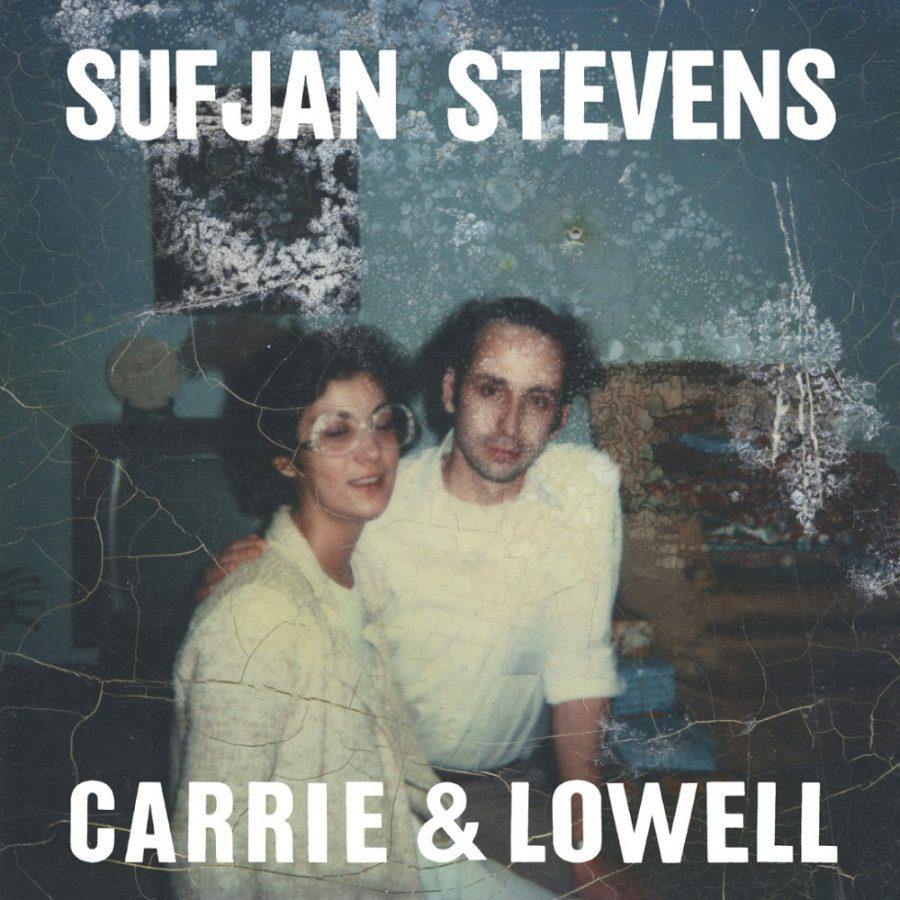Humans are hardwired to choose “flight” over “fight” when it comes to trauma and grief. Something about the human condition desperately wants to avoid pain and irreconcilable loss, which makes Sufjan Stevens’ newest album, Carrie & Lowell, a rare accomplishment.
Named after Stevens’ mother and stepfather, the Carrie of the title died in December 2012, fueling the album’s creation. Carrie & Lowell chronicles the pain and fallout that accompanies losing a loved one.
Carrie & Lowell returns to the folk roots of fan-favorite album Michigan and song “Chicago,” along with the quiet intensity that powered Seven Swans. It is a departure from the more recent electronic and eccentric The Age of Adz and All Delighted People.
Carrie & Lowell strips away every unnecessary element until the only remnants are those of the broken, raw and personal. Gone are the orchestral bands composed of 10-plus members, instead replaced with duets between Stevens’ quiet voice and his acoustic guitar or soft piano. At the peak of this lo-fi theme is “No Shade in the Shadow of the Cross,” a track recorded by an iPhone in a hotel room with a whirring A/C unit audible in the background.
Such a deeply personal album strikes each listener in a unique way. Initially, it feels wrong to share such an intimate record in the company of other people. This appears to be a common response with other listeners, as well as the curious fact that no two people seem to share the same favorite song.
For some, it is the ominous “Fourth of July” with its haunting refrain, “We’re all gonna die.” Others voice favor for tracks such as “All of Me Wants All of You” or “Eugene.”
The most logical standout track is “No Shade in the Shadow of the Cross,” a heartbreaking song that hammers home the themes of grief and sorrow. To Zach Neal, a Judaic studies junior, the song epitomizes all of Carrie & Lowell.
“‘No Shade in the Shadow of the Cross’ feels middle-aged, like youth beginning its degeneration,” Neal said. “The song maintains elemental Sufjan. The youth. The ‘Casimir Pulaski [Day],’ the ‘Chicago.’ It has received the revelation of Seven Swans, it has lost sanity in The Age of Adz. … Carrie & Lowell is not simply another album; it is a progression in the Sufjan Stevens odyssey, a stretching further into the darkness enveloping the human experience.”
The greatest strength of Carrie & Lowell reveals itself in its brutal vulnerability. Stevens allows the listener into the deepest and darkest corners of his grief, past the barbed wire piercing his heart to the center of raw emotion and human experience. These bleak times in Stevens’ life are laid bare throughout the album, from the contemplation of suicide in “The Only Thing” to a plea to drugs and sex for respite from pain in “No Shade in the Shadow of the Cross.”
Stevens captures the idea that to be vulnerable is proof of life. Humans live for struggle and pain; although the path is difficult, through stumbling and crawling, we make it to the other side. Carrie & Lowell is proof of this. If you have enough courage, listen. It will leave you a better person.
_______________
Follow Alex Furrier on Twitter.









